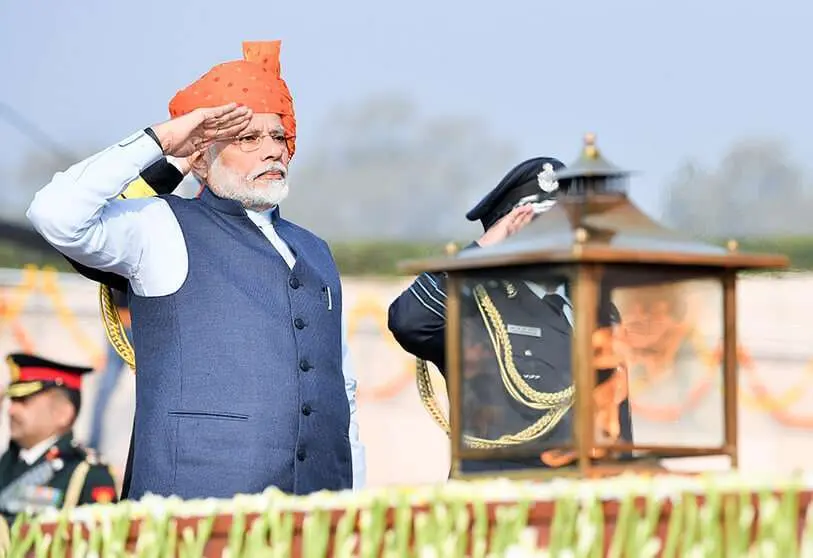The Indian factor in the Indo-Pacific strategic shift

One of the most potent motivations of the pro-Brexit voter was imperial longing and the conviction that Britain could once again rule the seas, as in the 19th century, leading a reincarnation of the British Empire by turning the Commonwealth into a surrogate of it, with the complicity of the special relationship with its former American colony. One need only glance at the euphoric headlines in British tabloids following the AUKUS deal to see that this rhetoric enjoys no small amount of fervour among a significant part of the British public.
Further to this idea, British Prime Minister Boris Johnson visited Washington D.C. a week after the AUKUS launch, just before the US President played host at the White House for the first face-to-face summit of Quad leaders, which was attended by the Prime Ministers of India, Narendra Modi, Japan, Yoshihide Suga, and Australia, Scott Morrison, with whom Boris Johnson had previously met.
If we agree with Hegel that the historical evolution of societies is the development of the idea, understood as the metapolitical, there is little doubt that the geostrategic idea that is unfolding in the Indo-Pacific region has a clear Anglo-Saxon imprint. This fundamental characteristic is often viewed through the lens of Sino-American antagonism, tacitly assuming that the other actors involved are, at best, fellow travellers, or, at worst, merely useful fools. However, the implementation of this unprecedented normative construct poses dilemmas of enormous political significance for some of its Asian members, with India - a power in its own right - leading the way.
On the one hand, India's supposed membership of the Anglosphere, as a result of the superficial permeation of the English language and common law during the British occupation of the subcontinent between 1858 and 1947, masks the kaleidoscope of complexities that define the Indian reality, and belittles both its agency and its will to power. Similarly, the geopolitical embeddedness of the Indian subcontinent gives it no existential room for antagonism with the Russians and Chinese. Consequently, Modi and his future successors cannot afford to be guests of stone.
Using the principle of charity to accept as a premise of analysis that the motivation for Anglo-American initiatives in the Indo-Pacific is not the territorial denial of China in the South Pacific, and Russia in the Antarctic, but the development of a power centre as a basis for redefining international law as a whole, the challenge facing proponents of this new relational framework is to resolve the dilemma of the legitimacy that, beyond Hans Kelsen's well-known principle of effectiveness, the nation-states involved in this enterprise have to impose their own rules on the rest of the world, and, on the other hand, to reconcile the loss of explicit national sovereignty that countries aligned with the Anglo-Saxon strategy will have to assume. This is easier said than done, particularly in India, where the profusion of political reforms is inversely proportional to the building of national consensus, and where the memory of British colonisation and the hundreds of thousands of deaths caused by Lord Mountbatten's arbitrary and hasty partition is decidedly less idealised than in the UK.
Thus, any hint of a ceding of national power that is perceived to run counter to the post-colonialist dialectic that has been central to Indian politics since independence has the potential to disincentivise New Delhi's real commitment to the Anglo-Saxon roadmap. In other words, Washington and its staunchest Anglo-Saxon allies are perforce obliged to make explicit whether the model of 'realpolitik' they have in mind is a kind of pseudo-colonialist 'all for Asia, but without Asia', based on a monopoly of military force, or whether they aspire to complete de-colonialism by empowering their Asian partners through a consensus-based decision-making process among peers, in the style of the normative power wielded by the European Union. In short, we can say, to paraphrase the American political scientist Robert Kagan, choosing between playing Mars or playing Venus.

